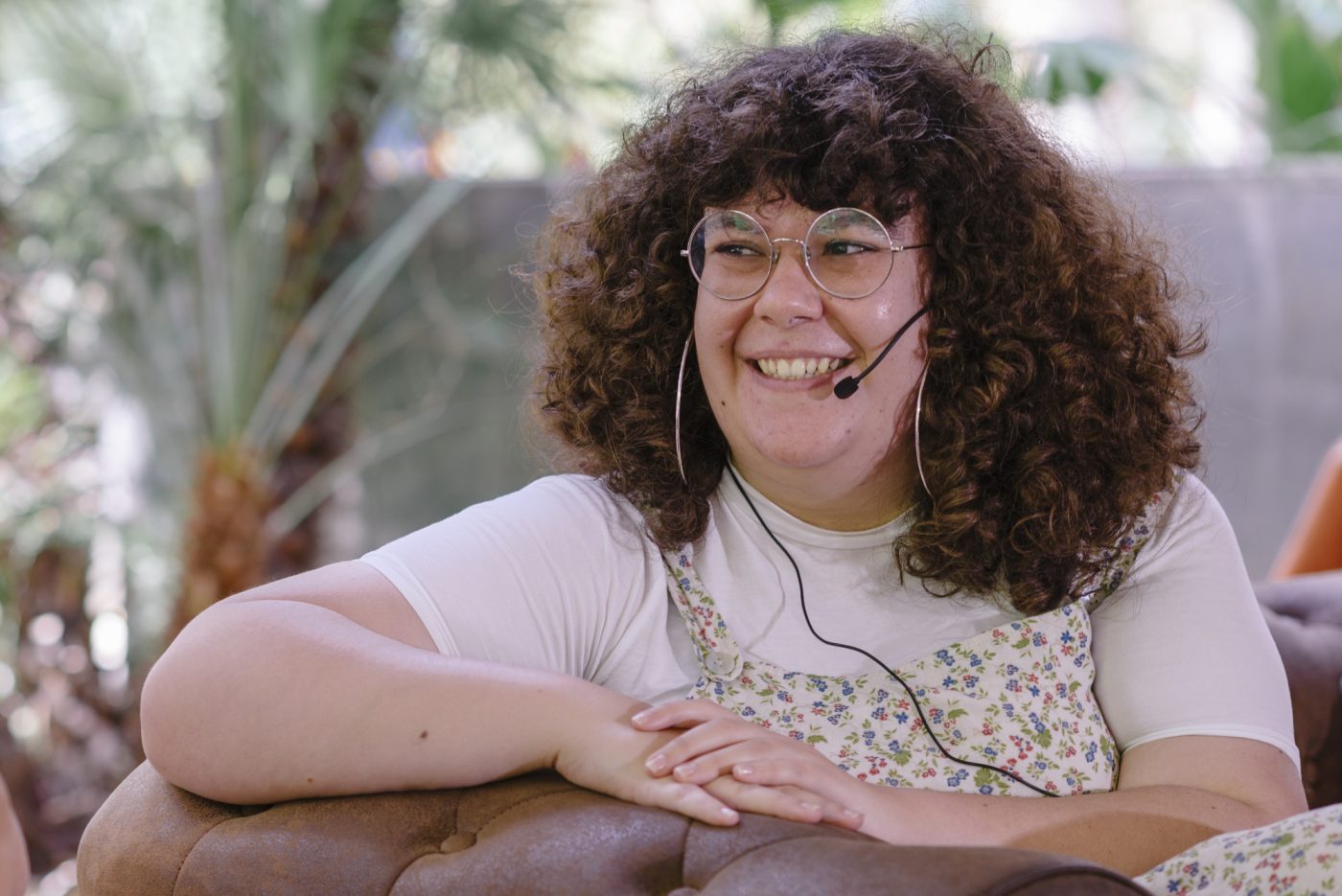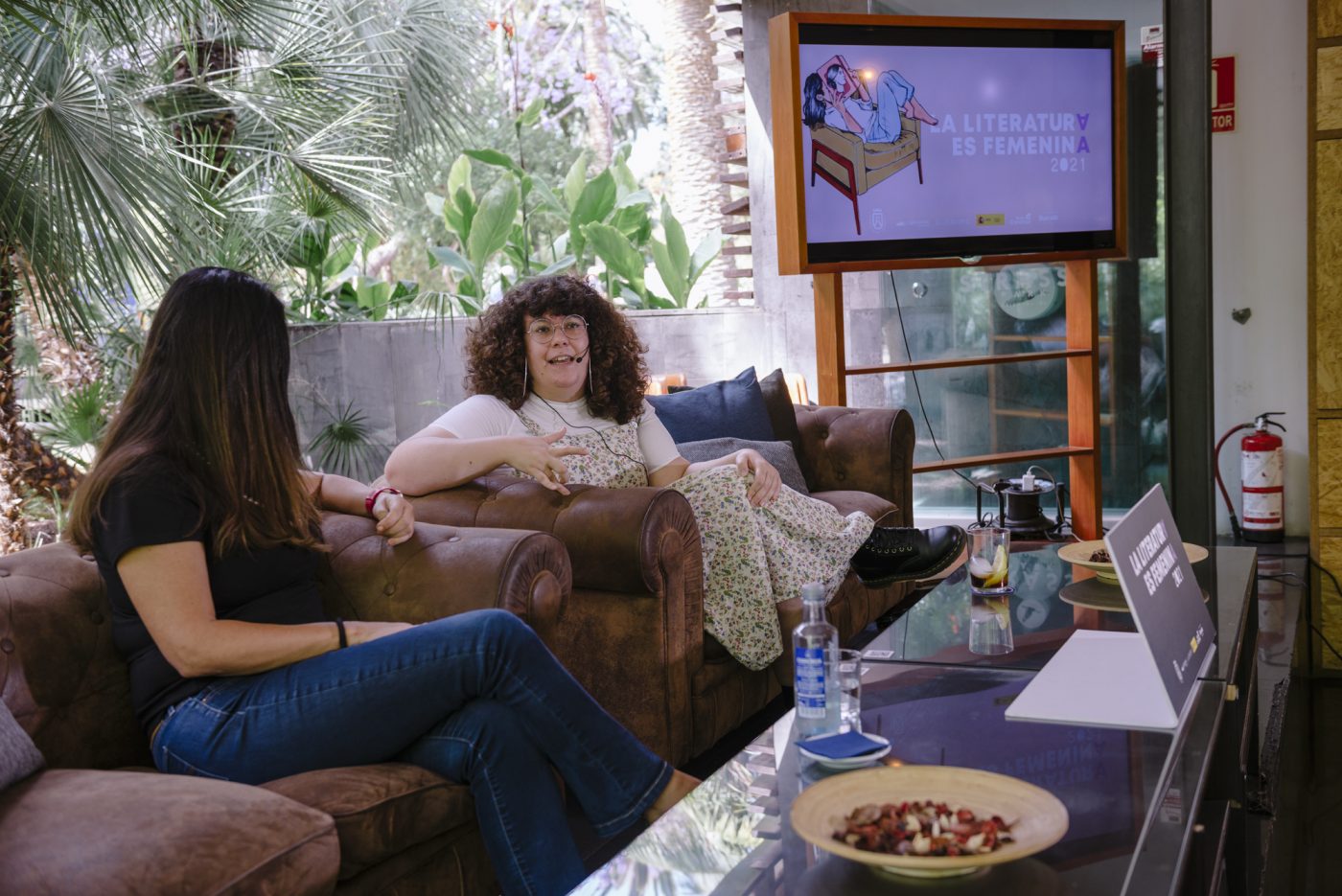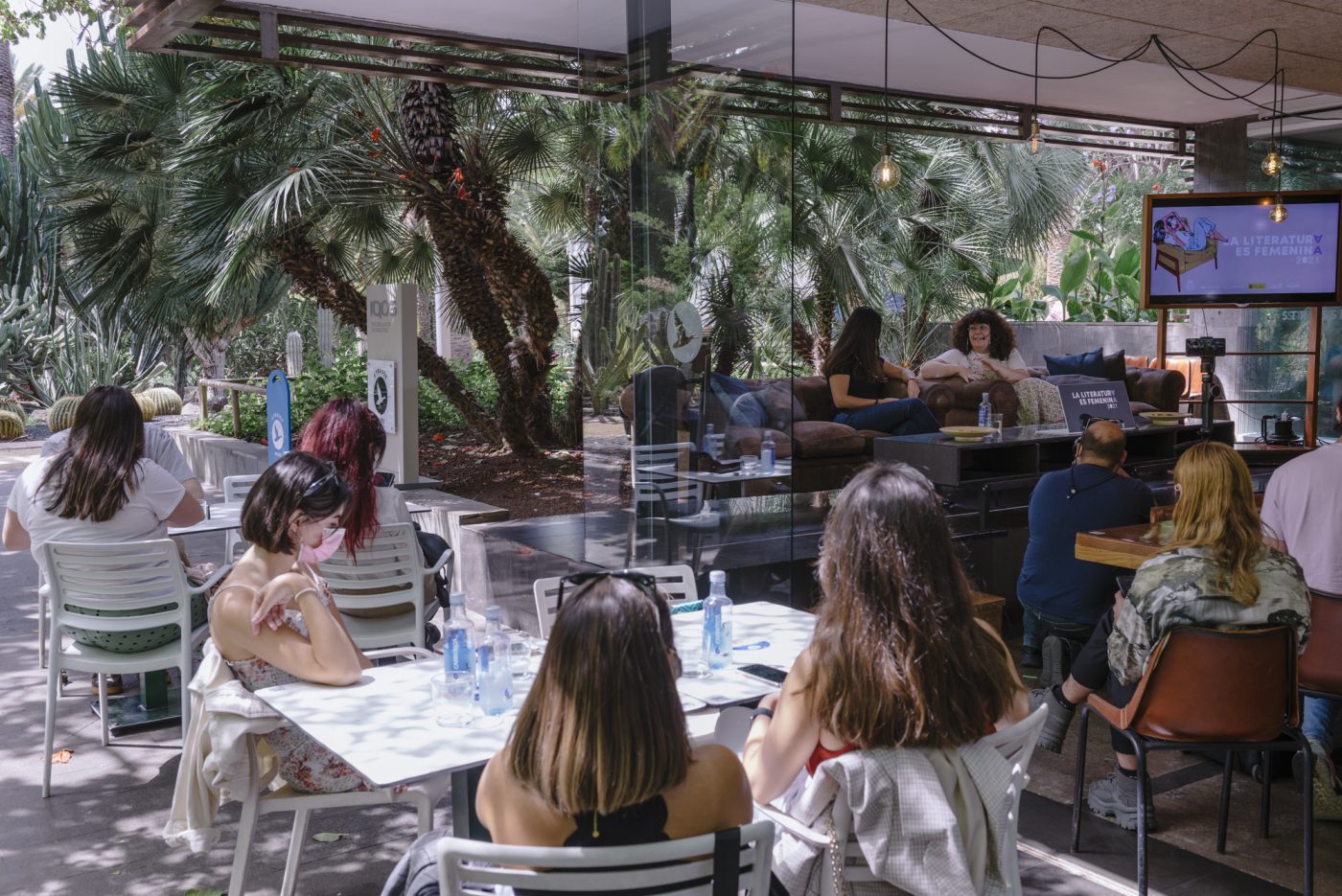
Literary meeting was broadcasted live through the Facebook of the association El Laboratorio for research and innovation in architecture, urban planning, design and advanced tourism.
The initiative La literatura es femenina (Literature is feminine), in collaboration with the Cabildo de Tenerife, the CajaCanarias Foundation and PROMOTUR, held this Thursday, May 27th in the Strasse Park of Santa Cruz de Tenerife, a dialogue between the writers Aida González Rossi and Dulce Xerach. The Canarian landscape, and how it is reflected in contemporary literature, was the subject of the conversation.
From the last collection of poems by the young Tenerifian writer Aida González Rossi, Pueblo y yo, Xerach picks up a quote with which one of the first poems begins: “Pico Teide licks the sky. It’s the sky and my eyes and a sandwich ”. “I wanted to open it with the landscape because I wanted to play with the idea of body and landscape. I am very interested in the relationship of women with respect to their body and the landscape ”, explains González Rossi. And the idea of the sandwich, she says, that «the gaze is part of the landscape, it is what configures it.»
The landscape affects us all
The fact of being from an ultra-peripheral region, such as the Canary Islands, creates, according to the author, a special look: “Having molded yourself here, your look will be very peculiar, and in the case of the Canary Islands, the landscape means many things to people that inhabit it ”. «I know writers who are not directly influenced by the landscape, they do not take it as something fundamental in their work, but I think it is,» says Aida González Rossi. Dulce Xerach goes further, citing Pérez Minik, and focuses on the condition of being from islands. “They are not the Canary Islands, it is insularity. And it is also that we have, here in Tenerife, all the ecosystems, and all of them very strong ”, she adds.

The philosophy of the environment
Reflection on the landscape is also an important part of the approach of both writers. “The relationship with desire changed when societies began to use writing. Before they could not focus on history, leaving aside the environment, since they had to survive and be alert”, explains González Rossi. And she goes further and links it to gender: “What is considered masculine is the elevated, the culture, the language; and the feminine would be the earthly, in the role that we are educated. We are on earth, in caring, in desires, in affections; they do not educate you so that you are so much in the world of ideas”.
Dulce Xerach believes that we live «by a mistake of Descartes.» “He separates the thought, from the body and from nature. And it is scientifically proven that when you put your emotions, feelings or ideas into writing, they go from the emotional plane to the rational plane”, she adds. Everything is connected and that, for her, has a lot to do with how we write: everything influences female writers.
From poetry to the novel
She is already working on her first novel, and for her the truth, as Virginia Wolf said, is «the emotion becomes more certain if you fictionalize it.» Aida González Rossi thought that the creative process was going to be similar, but nothing could be further from reality. “In poetry you use symbols in a different way. In narrative you use them so that they are read once, in poetry so that they are read several times”, she exemplifies.
Also times vary. She explains that in Pueblo y yo she worked for 6 months and felt that she had dedicated more time to it than she should have. «Now, with the novel, I feel that time is always too short for me,» adds González Rossi.
Gender influences
«I was always a little against reading novels looking at the biography of the author, it seemed to me something quite misogynistic,» says the young writer. She acknowledges that, turning it around, she understands it: «In gender studies, objectivity is not understood by taking away your gender and writing it as a scientific article, objectivity is to make the identity of each person explicit.»
«It is that, even if it is unconsciously, many things of oneself are put into the characters of a novel,» says Dulce Xerach. This does not mean to her, she adds, that all the characters are reflections of the writer: “There are also characters in which you put someone you hate, who is totally different from you. But in all the characters there is something of you because you play them”.
New generation of Canarian female writers
At present there is a literary movement emerging in the Canary Islands that is indisputable. “We help each other a lot. We do not compete and I think we are doing very nice things. You are reaching a point of this Canarian deconstruction, and that is why I like to talk about the landscape so much”, explains Aida González Rossi. And even more so because the Canary Islands, as an environment, is not told in literature, even less from the narrative of a woman. «It is something that we did not know we needed and it is very gratifying to see your childhood reflected with such similarity,» she adds regarding the literary phenomenon Panza de burro, by Andrea Abreu.

The canareidad (“canarity”), for Dulce Xerach, has not been left out in her novels: «When my protagonist wanted to encrypt a message to his superior, also from the Canary Islands, she did so using Guanche words.» “I feel that it is something that counts”, Aida counters. Being from Granadilla, she has always perceived that town-city contrast, and even more so that of the Canary Islands-exterior. «The books she read were not by Canarian writers, and the people with whom I communicated, thanks to the first social networks, made me express myself so that they would understand me,» she says.
